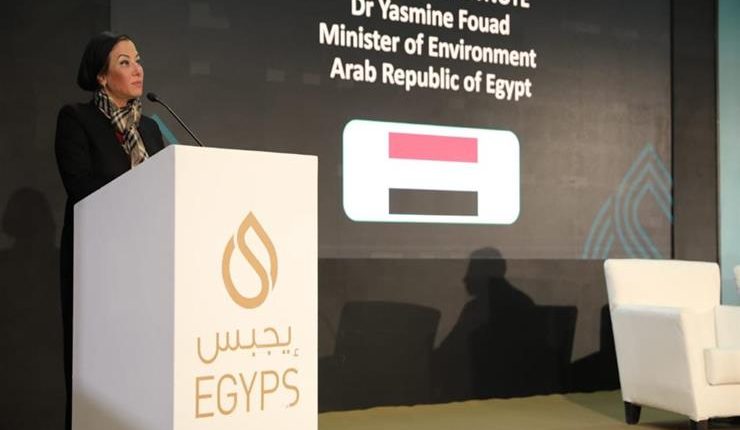Egypt produces only 0.6% of world’s CO2 emissions – minister
Egypt produces only 0.6 percent of the world’s carbon dioxide (CO2) emissions, the road to net zero requires increased collaboration between the environment and energy sectors, its environment Yasmine Fouad said at EGYPS conference on Tuesday.
Taking at the fifth edition of the Egypt Petroleum Show (EGYPS), Minister Fouad said the challenge is to “keep the balance between the transformative and speedy development and the environment and conservation of natural resources,”
Supporting the clean energy transition in North Africa and the Mediterranean region is one of the key topics of discussion at EGYPS exhibition and conference as Egypt prepares to host Cop27 in Sharm El Sheikh next November.
Adopted in 2015, Paris Climate Change Agreement is signed by about 200 countries including Egypt, sets out ambitious goals to try to curb global warming to 1.5°C above pre-industrial levels.
At the opening of EGYPS, Egyptian President Abdel Fattah al-Sisi said providing poor African nations with the financial support needed during the clean energy transition should be the top priority at Cop27.
A pledge by rich nations to commit $100 billion a year to developing nations to help them adapt to climate change has not yet been met.
The top CO2-emitting countries worldwide are China, the US, India, Russia and Japan.
Africa is responsible for less than 2 percent of global emissions, despite being the second-most populous continent, said Fatih Birol, executive director of the International Energy Agency (IEA) at EGYPS.
“We have to make sure that Africa doesn’t shoulder a heavy burden in transitioning to clean energy,” Birol added.
In Egypt, the energy sector, including electricity, transit and oil and gas, makes up 65 percent of the country’s emissions, Minister Fouad said.
Oil and gas make up only 3 percent, she added.
To solve the challenge of lowering emissions, the Egyptian minister said climate finance, the inclusion of the private sector, the use of green technologies in developing countries, and a national capacity-building programme to train and grow human capital is also necessary.
“If we have the financing and we have the technologies, but we don’t have the human resources who are able to manufacture, operationalise and maintain those technologies, we would not be closing that circle,” she said.
The relationship between the energy and environment sectors in Egypt has evolved in recent years to one of tension to one of co-operation, where now the “carrot is used more than the stick,”
Minister Fouad referred to several success stories that involved a joint effort between the Egyptian Ministry of Environment and Ministry of Petroleum.
For example, she said that 11 out of 13 petroleum companies in the Gulf of Suez have enacted environmental sanitation plans that include the establishment of industrial wastewater treatment plants at a total cost of 7 billion Egyptian pounds ($444.4 million). The remaining two companies will complete the projects by the end of the current year.
Oil and gas companies are connected to the national network for industrial air quality “so we are able to track their emissions minute-by-minute”, Minister Fouad added.
In the energy sector, solar and wind power have been further developed over the past seven years.
Refuse-derived fuel, a fuel produced from various types of waste, is now being used as an alternative in cement plants.
There are ways to “give a win-win to both the development and the environment”, the minister added.


